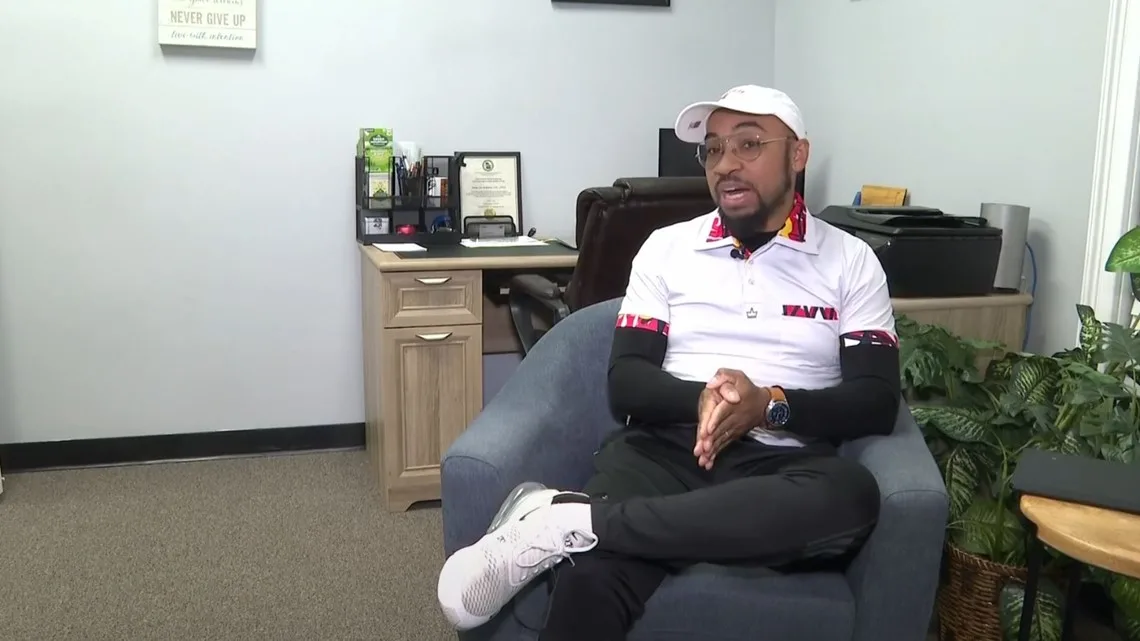
Therapists share why Black men are resistant to therapy and how to change it.
ATLANTA — Therapists in Atlanta are talking about a disparity in the mental health field.
A study from the American Psychological Association shows that Black therapists make up only 4% of all therapists. It also shows that Black men are less likely to try therapy, but when they do, they want one that looks like them.
Licensed counselor Justen DeBowles said he believes Black therapists make up less that half of that 4%. And traditional male ideology contributes to why Black men seem to be resistant to seeking therapy.
“If you express emotion, it’s a sign of either femininity or outright weakness,” DeBowles said.
Licensed counselor Coty Martin said there’s a lot of pressure on Black men.
“It’s not the easiest thing to do, especially when we’re trying to provide,” Martin said. “We’re trying to protect.”
Not just protecting their loved ones, but also themselves. Martin said Black men see people who look like them get shot and killed what feels like every other day, such as 15-year-old Mario Bailey. And they see Black men dying during police interactions, such as Johnny Hollman. He said it’s traumatic.
“We oftentimes feel as if, ‘what if we’re next? When will this next interaction happen? How do I get back home safe?” Martin said.
Martin said Black men have told them they don’t want anyone in their business, but he wants clients to know that they have confidentiality.
DeBowles said Black, men therapists are hard to come by. While studying at Auburn University, he didn’t see other students who looked like him in the program.
“It was at least 80% female, which really only gave us about four to five males,” DeBowles said. “I was the only black one.”
That’s why DeBowles and Martin joined the Counseling Brothers of Atlanta. It’s a non-profit comprised of dozens of Black, men therapists who are ready to help.
“You have resources out there, but a lot of resources are not specific to black male therapy,” DeBowles said.
When treating Black men, DeBowles said it may mean changing your approach, such as dressing comfortably, having sessions later in the day for men who work late, and even working pro bono sometimes. Financial barriers may also deter Black men from trying therapy.
“Even if you are concerned about the finances, reach out anyway,” DeBowles said. “You never know what your therapist, your potential therapist, may be able to work out for you.”
DeBowles said it’s also about being conversational and creating a safe space outside of the home.
“Shed it, for at least the hour that we’re sitting here,” DeBowles said.
Martin suggests to anyone interested in therapy to figure out exactly what you’re struggling with before you start looking so you can find a therapist that specializes in your specific needs.

